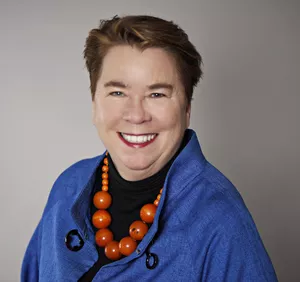
Archives and activism

“My research examines queer and trans history, the history of capitalism, histories and theories of photography, and oral history, but if I can get two or three of those research areas in one project, then I am golden,” says Brown, a professor in the Department of Historical Studies at U of T Mississauga.
“Over the last several years I have been increasingly focused on community-engaged scholarship and public history, and part of that stems from the fact that I'm a long-standing volunteer and also now the co-president of the board for the largest independent queer community archive in the world called The ArQuives, based here in Toronto, and I think at this point it is also the oldest, having been founded in 1973.”
The “LGBTQ Oral History Digital Collaboratory” is an ongoing project funded by the Social Sciences and Humanities Research Council of Canada since 2014 that Brown has spearheaded with collaborators Aaron Devor and Lara Wilson from the University of Victoria, iSchool students at UofT, Raegan Swanson at The ArQuives, as well as moving-image artist and scholar Chase Joynt.
The project unites scholars and artefacts from four different archives including the Canadian Lesbian and Gay Archives and the Lesbians Making History project, the Digital Transgender Archive, the Transgender Archives at the University of Victoria, and the Archives of Lesbian Oral Testimony. The first phase of the project was focused on collecting and digitizing LGBTQ oral histories from a range of people who chronicle gay and lesbian life in the US and Canada from as early as the 1940s and also during and after the Stonewall riots that occurred in New York City in 1969.
The second phase of the project is to make these histories more accessible to academics as well as a broader public.
On this front, the Collaboratory is currently publishing a 70-page comprehensive guide for scholars working in this field that logs all the recorded histories available for all the trans-related holdings at The ArQuives in all media formats. Additionally, in order to reach a more general audience beyond scholarly practice, the stories collected will be available through a range of platforms including online digital exhibitions and eventually a film led by the work of Joynt, an award-winning filmmaker.
“That oral history project is about trans activism before the rise of the internet, and we've interviewed folks in the US and Canada, who are trans elders over the ages of 55, about their histories and experiences of activism around trans issues.”
It was while collecting the oral histories related to trans activism that her team noticed a definite pattern emerge: the vast majority of their storytellers were white. This led to some revelations for Brown about rethinking research design to make the output more inclusive.
“We did some serious analysis as to why that is the case and, let's face it, it's because who is it who's trans who's managed to live past age 55?” says Brown.
The Collaboratory is now considering how to redefine the term “elder” and productive ways to address structural inequalities that might be inherent in their original approach to research questions so as to avoid marginalizing people further. They are also looking for ways to better connect with community members and foster further engagement and participation. The way forward might include training and encouraging organizations to create their own oral-history archives with community members, as opposed to outside academics, interviewing each other about their histories to perhaps elicit more authentic narratives. The other option is to have a core group of narrators to submit their own stories and then encourage people within their network to follow suit so as to solicit more stories from their community.
“One of the amazing things about the last couple of weeks leading up to Pride at the end of June is the realization that police brutality is ongoing that brings us back to the history of Pride in terms of what it commemorates, which is LGBTQ people – led by trans women of colour – fighting back against police brutality in New York City and the decades of police harassment and entrapment that led to the Stonewall protests and that time in 1969,” says Brown.
“I think the challenge around activism and history is about thinking through these systemic inequalities, whether or not we're queer or trans. So that seems to me to be really the central call for activism within LGBTQ organizations: to think through questions of structural inequalities within organizations to really see how it shapes the work that we do, and then to change that.”
Resources
- To hear more about this work, as well as other projects Professor Brown has taken on including a history of LGBTQ in Peel, listen to the recent episode of VIEW to the U.
- Find out more about the LGBTQ Oral History Digital Collaboratory.
- Find out more about The ArQuives.
- Read the article by UTM News “Queer in the Suburbs.”
- Find out more about the Queer Peel Oral History Project.
